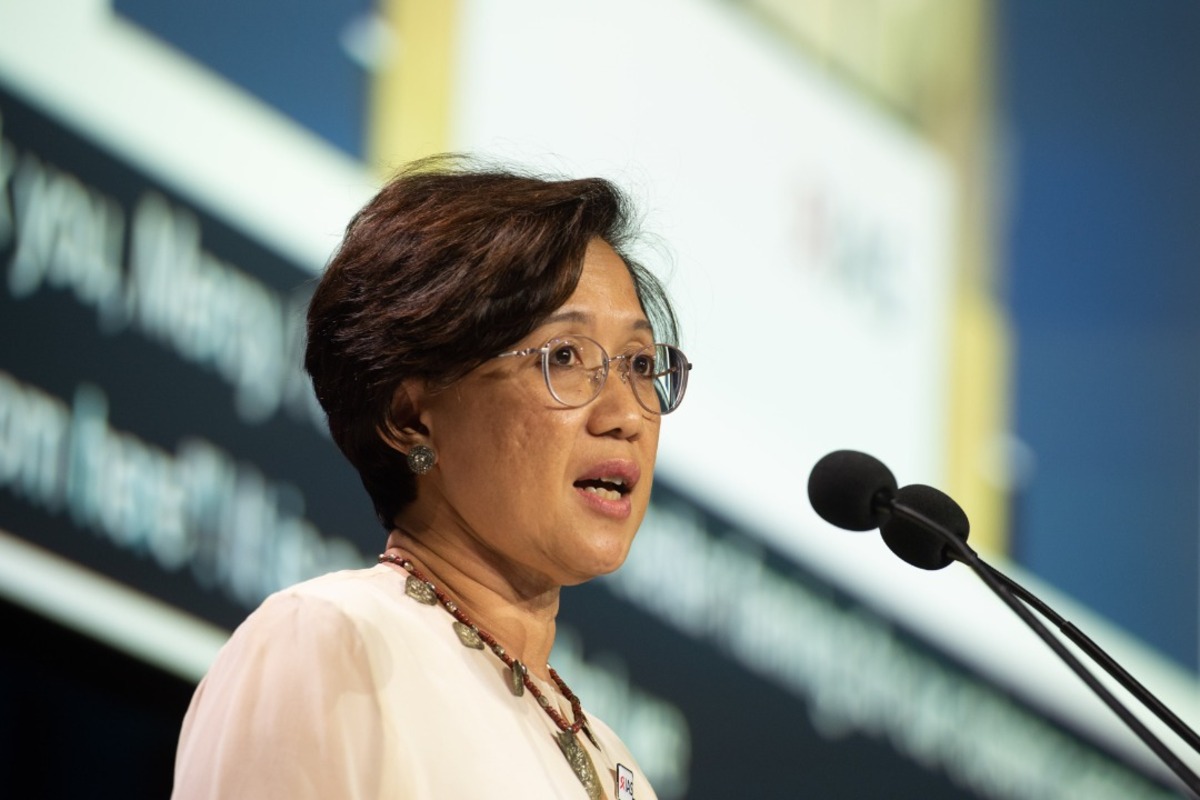PETALING JAYA, Jan 17 — Although Prof Dr Adeeba Kamarulzaman acknowledges that the Malaysian health care system is unprepared for a surge of hospitalisations from Covid-19, the infectious disease expert said a spike in seriously ill Covid patients is preventable.
The member of the World Health Organization (WHO) Science Council said Malaysia must try to reduce hospitalisations as much as possible by using past experiences from the last three years of the Covid-19 pandemic – such as vaccination, wearing face masks, early testing and access to Covid medication, and mobilising primary care doctors.
“You know if there’s one thing about the Malaysian health care system, and we saw it during Covid, we were unprepared then, but we just get down and do it,” Dr Adeeba told CodeBlue in an interview here last Tuesday.
“It doesn’t mean that it’s right. We can always do better, but we must try so that we minimise the number of hospitalisations as much as possible. I mean, obviously vaccination and getting as many people to mask up and be as concerned as they were back in 2022 or 2021.
“We just can’t throw our hands up and say, ‘We are going to get a surge.’ The thing is now we know exactly what we can do to reduce the numbers. And so, we probably need to mobilise the kind of effort that we saw in the primary vaccination programme to target those who need the boosters.”
CodeBlue interviewed Dr Adeeba specifically on the country’s preparedness when it comes to tackling a predicted wave of Covid-19 cases, following the reopening of China’s borders last January 8.
The Ministry of Health (MOH) recently announced a list of Covid-19 vaccination centres (PPVs) in public and private health care facilities that are open to walk-in booster jabs for high-risk individuals. Some Malaysians interviewed by CodeBlue in Kuala Lumpur, however, do not see the urgency in getting their second Covid booster shot.
Several Members of Parliament and state assemblymen also did not appear to treat booster inoculation with the same urgency as with the mass primary vaccination programme, telling CodeBlue that they would wait for instructions from Putrajaya if fresh inoculation drives were needed in their communities.
Highlighting the complacent manner in which Malaysians are viewing Covid-19, Dr Adeeba held that it was important to “lead by example” when encouraging people to mask up and to take other preventive measures, warning that Covid is a disease that can come with long-term symptoms, beyond mild respiratory illness.
“I think a lot of people think Covid is just a mild disease now. And yes, when you get it, you feel lousy for a while, but we are getting to hear more and more about the long-term consequences of Covid. The neurological impairment, the lung diseases, the clots, and there’s still so much we don’t know what it’s going to do in the long term,” Dr Adeeba said.
“So if you can, you want to try and avoid it. But in terms of hospitalisation, unfortunately even here, we still see people who’ve either not been vaccinated or only had two doses of the vaccine. That’s so so avoidable, right?”
Thus, to reduce chances of hospitalisation — especially for those who have not been vaccinated — early testing and access to the Paxlovid antiviral drug is one of the ways to reduce hospitalisation from Covid-19.
“In terms of the hospitalisation, we need to get people, if they think they’ve been exposed, to test early and, if they’re eligible, to get Paxlovid as quickly as possible. Because that will also hopefully reduce hospitalisation, especially for those who’ve not been vaccinated.
“So there are still many things we can do to reduce the number of people who end up in hospital or at the primary care level,” Dr Adeeba said.
Medical experts and doctors have highlighted overcrowded emergency departments in busy public hospitals nationwide, after CodeBlue reported last month that critically ill non-Covid patients are waiting in the emergency room for up to six days for ward admission in Raja Permaisuri Bainun Hospital (HRPB), a tertiary hospital in Ipoh, Perak.
Daily Covid-19 infections and hospital admissions nationwide have been on a downward trend from last November/ December 2022, according to KKMNow statistics. Health Minister Dr Zaliha Mustafa reportedly said last Saturday that the Health Ministry does not project a spike in Covid-19 cases from the upcoming Chinese New Year celebration.
“The emphasis has really got to be earlier care, so that we kind of reduce the number of people who need to come into hospital at a late stage. We need to mobilise the primary care doctors, including general practitioners (GPs),” Dr Adeeba said, referring to Covid-19 management.
The infectious disease expert pointed out that as public health clinics (Klinik Kesihatan) are already overburdened with patients across board, private GPs need to be roped in to step up early detection and early management of Covid-19.
“The trouble with Malaysians is, by and large, they wait until they’re really ill before they come to the hospital, and that’s what happens,” said Dr Adeeba.
Dr Adeeba pointed to a potential increase in the hospitalisation of elderly patients as well.
“And the other thing is with the increase in elderly patients, again, working in the community to provide support and care in the community are some of the measures. It’s not going to help without having more doctors and nurses,” she stressed.
“I mean it’s a big, big problem and that’s why I keep saying the emphasis is: do everything we can to reduce; make sure our elderly are vaccinated for the flu, for example. We’ve done a lot of emphasis on Covid, but all these preventable diseases like flu and pneumococcus – make sure that our elderly are vaccinated for all of those things.
“Because once we are stuck, we’re stuck. And no doubt that it’s going to increase further morbidity and mortality.”








